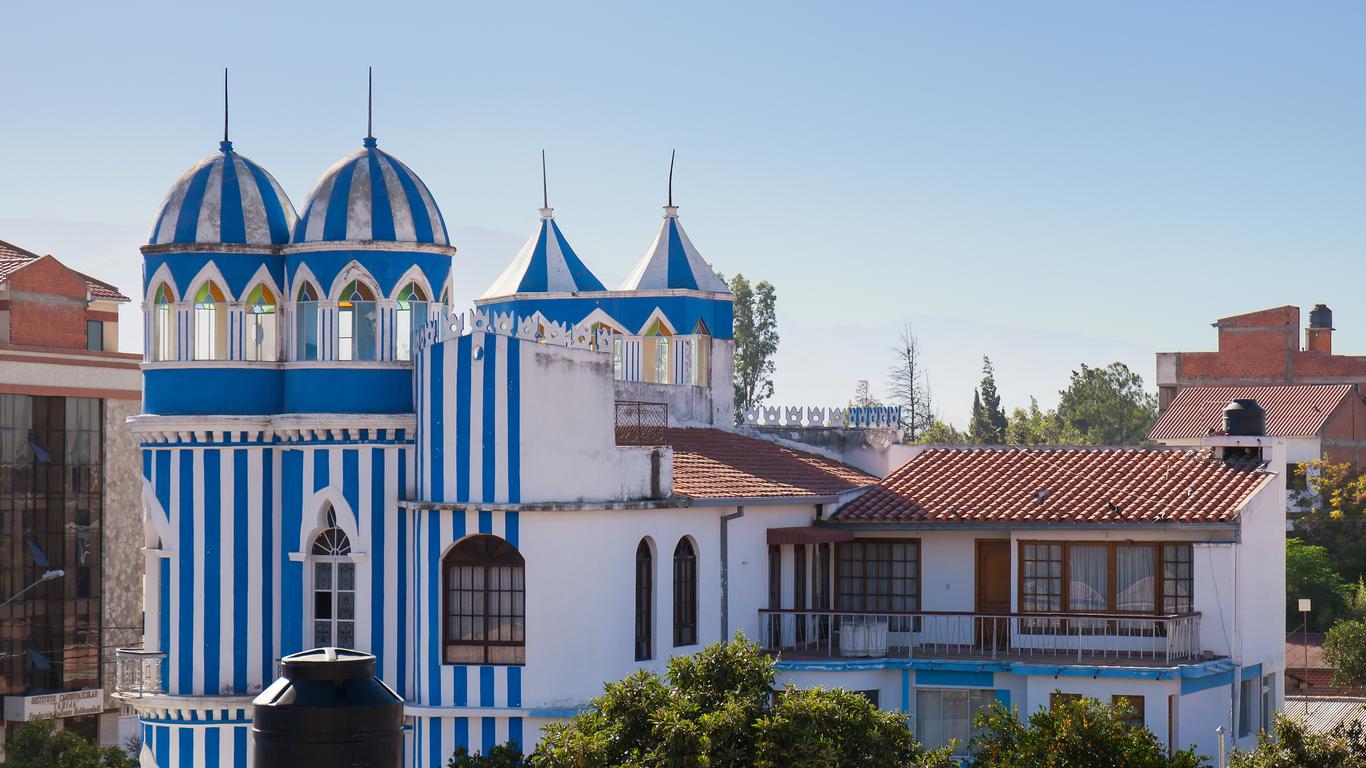
Bolivia travel guide
Bolivia Tourism | Bolivia Guide
You're Going to Love Bolivia
Known for its adventure-prone landscapes and natural beauty, Bolivia is also a surprising destination for those interested in culture. Museums and celebrations are just some of the ways you can learn more about Bolivia's complex history.

What to do in Bolivia
1. Ride a Bike Down "Death Road"
Officially called North Yungas Road, this winding and narrow road is famous for adrenaline-filled bike rides. Take a local guide when cycling here and leave the driving for the pros.
2. Explore the Amazon Rainforest
Usually associated with Brazil, a part of the Amazon is on Bolivian territory. Touring the world's largest rainforest on the Bolivian side typically means fewer tourist crowds.
3. Visit the World's Most-Photographed Salt Flats
Salar de Uyuni is probably the most famous salt landscape in the world and one of the many reasons people travel to Bolivia.
4. Visit Lake Titicaca
It's the largest lake in South America and the largest in high altitude in the world. It's a must-visit not only for its natural beauty but because it's known as the place where the Inca civilization came to be.
5. See La Paz from Above
Take a ride on Mi Teleférico for a spectacular view of Bolivia's capital city from the top.
When to visit Bolivia
The best time to visit Bolivia is from May to November for reliable weather and more things to do. Expect crowds in the festival season in August.
How to Get to Bolivia
Entry requirements
Citizens from the United States need a visa to enter Bolivia. Nationals from most other countries can enter the country with just a valid passport.
Plane
Bolivia is served by three main airports, located in La Paz, Cochabamba, and Santa Cruz, where most flights from Europe land.
Car
The best roads to enter Bolivia by car are from Brazil, Peru, Argentina, and Chile. The same visa rules of entering by plane apply.
Foreign citizens need a circulation card ("hoja de ruta"), which needs to be shown and stamped at all police checkpoints you'll find along the road.
Bus
International bus connections between countries are frequent in South America. For convenience, book your bus trip with an agency that will cover the whole route instead of making you switch buses at the border.
Boat
The only way to reach Bolivia by boat is to travel from Puno (Peru) across Lake Titicaca.
Popular airlines serving Bolivia
Where to stay in Bolivia
Accommodation in Bolivia ranges from affordable "residenciales" to more upscale hostels, inns, and hotels. Most of the time, amenities like air conditioning and heating influence the final price of the room.
Where to stay in popular areas of Bolivia
Most booked hotels in Bolivia
How to Get Around Bolivia
Public Transportation
Most of the larger towns and cities are served by an efficient network of half-size buses ("micros"), minibuses, and "trufis" (cars, minibuses, or vans).
Those local public transportations are numbered and follow a set route, although bus stops are not yet frequent. You can hail a bus or drop off anywhere you want.
Trains
Trains are more comfortable than buses in Bolivia but usually slower. There are two companies operating regular train connections in Bolivia: Ferroviaria Oriental and Empresa Ferroviaria Andina.
A train ride can cost approximately B$10-240 ($1.45-35), depending on the class you choose and how far you're traveling. Buy tickets in advance.
Bus
Getting around by bus in Bolivia is one of the cheapest and most comfortable ways. Classes range from the most affordable "coche" (bus) to the more expensive sleeper service ("cama").
Car
Car rental companies don't usually ask for more than your country's driver's license, but it's best to have an International Driving Permit just in case. Get travel insurance that covers rental cars in Bolivia.
The conditions of the road vary and since it's hard to find places to buy spare parts outside of major cities, it's best to pack some in the car with you.
Plane
Domestic flights in Bolivia are frequent and an inexpensive way to get around. It's also a more convenient way to travel around the country when weather conditions don't allow safe travel by land.
The Cost of Living in Bolivia
Cash is the preferred mode of payment and ATMs are easier to find in major cities. Some of the large restaurants and hotels in main cities accept payments with credit cards. An inexpensive meal costs about B$20 ($2.90). Grocery shopping for a couple of days should cost around B$130 ($19).